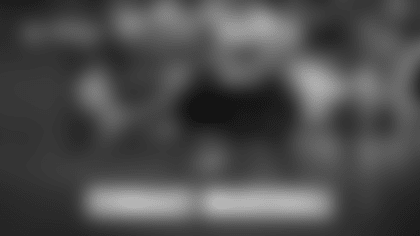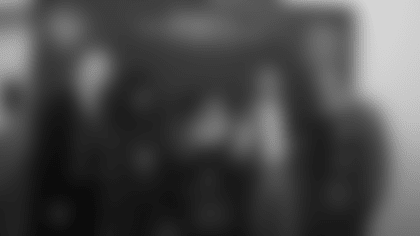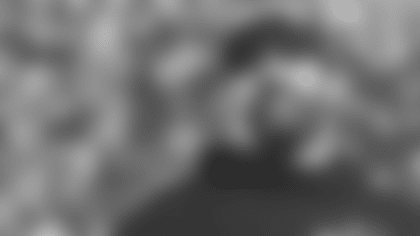"I didn't know my 'why' for a while."
To hear those words from a man who is one of the most accomplished players at his position is stunning. But that's what Lane Johnson told FOX Sports' Jay Glazer in a one-on-one interview that aired Sunday afternoon just before the Eagles-Lions game.
Johnson has been named to the Pro Bowl three times. He was a first-team All-Pro when he helped the Eagles win their first Super Bowl Championship in franchise history. All of these accomplishments came after Johnson was selected fourth overall in the 2013 NFL Draft. Accolades very few players can put on their résumé.
If you polled the players in the locker room and asked who is the funniest Eagle, Johnson would receive several votes – if not the most. Johnson has always been engaging with the media, starting his own podcast during the pandemic.
But the popularity and success don't make up for a clinically diagnosed anxiety disorder that was unearthed when Johnson was at Kilgore College, a junior college in Texas, in 2008. For 13 years, Johnson has battled something more relentless than any pass rusher lining up across from him on Sundays.
"I was living in hell for a long time," Johnson said.
In a postgame press conference on Sunday at Detroit's Ford Field, he explained that he viewed the antidepressant medication that he was on as a crutch. He tried to wean himself off of them, but that caused withdrawal symptoms similar to the flu – a lot of nausea, a lot of vomiting.
Finally, Johnson relented and left the team on October 3 – when the Eagles played the Chiefs – to drive back home to Oklahoma. The Eagles said at the time that Johnson was dealing with a personal matter. In a show of support, Head Coach Nick Sirianni wore a 65 decal on his visor. Johnson returned to the team on October 18 and posted the following statement.
Sirianni preaches connection as one of the main principles of his program. Johnson was welcomed back to the team with open arms. Several players around the league have since shared their own mental health challenges with Johnson, helping him realize that he's far from alone.
"I couldn't ask for nothing better," Johnson said when asked about the support from the team.
Johnson found his "why," to help further the conversation of mental health around the NFL.
"Don't bottle it up. And it's easy to do that," Johnson said. "It's easy to avoid the situations that you don't want to go through, some that's going to be difficult."
One of Johnson's closest friends on the team, Pro Bowl guard Brandon Brooks, is no stranger to bouts with anxiety disorder. Like Johnson, Brooks has been open and honest about his struggles since arriving in Philadelphia in 2016. Brooks has served as a role model for Johnson and others and has helped amplify the importance for players to work on their mental health as much as their physical fitness.
"This is what I dealt with. It was terrible. I don't wish it on nobody," Johnson said.
Moving forward, he wants to focus on being the best right tackle that he can be and help contribute to outstanding performances like the one the Eagles had Sunday in the 44-6 win over the Lions.
"I got the help that I needed," Johnson said. "You're reminded how lucky you are to be in the position that you are in, so taking it day by day."















